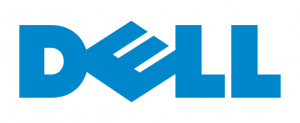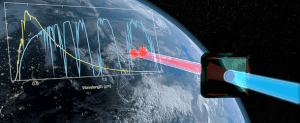Quantum News Briefs June 22: Dell to provide tools & capabilities to quantum tech, Thales & SYRLINKS partner on quantum clocks, China’s Blockchain Platform ChainMaker withstands classic & quantum attacks, and MORE

Quantum News Briefs today opens with an interview with Dell CTO John Roese who discusses the need for quantum tech work force development and who also explains that Dell intends to provide the tools and capabilities to make quantum tech viable. This is followed by the Thales/SYRLINKS collaboration French defence procurement agency (DGA) to develop a high-performance quantum clock. Quantum News Briefs includes more info about China’s wide use of the blockchain and the role of the recently announced new quantum-resistant blockchain followed by a brief introducing the QTKT initial coin offering that includes quantum encryption and still MORE.
Dell Technologies CTO Says Dell Will provide Tools and Capabilities to Make Quantum Tech Viable
 “There is an urgent need now to build up skillsets in quantum computing. Recent progress has underscored the need to ensure there were skillsets ready to tap and support future deployment of quantum computing”, said Dell Technologies CTO John Roese in a recent interview with ZDNet. He explained the field requires a different set of skills as the programming language and build logic were different. Software frameworks and tool chains also were new, so the tech workforce including data scientists would have to adapt and build up new skillsets for quantum computing.
“There is an urgent need now to build up skillsets in quantum computing. Recent progress has underscored the need to ensure there were skillsets ready to tap and support future deployment of quantum computing”, said Dell Technologies CTO John Roese in a recent interview with ZDNet. He explained the field requires a different set of skills as the programming language and build logic were different. Software frameworks and tool chains also were new, so the tech workforce including data scientists would have to adapt and build up new skillsets for quantum computing.
Efforts here at least appear to be underway. Dell estimates that governments worldwide have committed upwards of $24 billion in research and development investments to establish competencies around quantum technology. Roese further added that Asian nations such as China, Singapore, and India were amongst those that had begun work to build up capabilities in quantum computing.
Roese noted that while public key cryptography remained robust today, the threat quantum advancements presented was “real enough” and could pose certain risks in the future. He pointed to the need for tools to support crypto “agility”, which would allow organisation to decide what kind of data should be wrapped in post-quantum encryption.
Asked where Dell fit in the quantum space, Roese said the tech vendor was not looking to produce quantum computers. Instead, it aimed to provide the tools and capabilities to piece together what was required to make such systems viable.
*****
Thales & SYRLINKS to Develop High-Performance Quantum Clocks Capable of Operating with Satellite-Transmitted GNSS1 Signal
 Thales and SYRLINKS, a French company based in Rennes, Brittany, have signed an ambitious multi-year contract with the French defence procurement agency (DGA) to develop a new generation of very small, high-performance atomic clocks.
Thales and SYRLINKS, a French company based in Rennes, Brittany, have signed an ambitious multi-year contract with the French defence procurement agency (DGA) to develop a new generation of very small, high-performance atomic clocks.
Code-named CHRONOS, these new quantum clocks will meet the requirements of numerous civil and military applications. Thanks to their very high stability (error of less than 1 second in tens of thousands of years), defence electronics equipment will be able to operate when a GNSS1 signal (GPS, Galileo, etc.) is unavailable, for example due to hostile jamming.
Working with the procurement agency, the partners will help safeguard France’s technological sovereignty in GNSS-denied positioning, guidance, navigation and ECCM-protected, encrypted military communications. In civil applications (5G network synchronisation, transport, energy, etc.), the CHRONOS quantum clocks will deliver unprecedented price/performance to French and international customers.
Large swathes of the modern economy now rely on satellite synchronisation, and all the world’s major powers have their own GNSS satellite constellations (like Europe’s Galileo system) to guarantee their independence and protect their sovereignty.
GNSS technology provides the precise time reference for critical infrastructure such as 4G/5G networks, Internet, air and rail transport, energy networks, global banking transactions, high-frequency trading, satellites, etc., which would quickly fail if the signal were unavailable. In view of this high level of dependency, back-up systems are needed to ensure that our civil and military infrastructure can continue to operate even if the GNSS timing signal is unavailable.
*****
UK’s “Quantum Readiness Survey” Shows Most Organizations to Start Prepping for Quantum in Next 2 Years
 A “Quantum Readiness 2022” survey conducted in February-March 2022 covered 501 UK-based executives, all with senior roles in their organizations, who had to demonstrate at least a moderate (but preferably a high) level of understanding of quantum computing. Surveying organization EY said they originally approached 1,516 executives, but only 501 met this requirement, which in and of itself tells a tale.
A “Quantum Readiness 2022” survey conducted in February-March 2022 covered 501 UK-based executives, all with senior roles in their organizations, who had to demonstrate at least a moderate (but preferably a high) level of understanding of quantum computing. Surveying organization EY said they originally approached 1,516 executives, but only 501 met this requirement, which in and of itself tells a tale.
EY’s Quantum Computing Leader, Piers Clinton-Tarestad, said the survey reveals a disconnect between the pace at which some industry leaders expect quantum to start affecting business and their preparedness for those impacts. “Maximizing the potential of quantum technologies will require early planning to build responsive and adaptable organizational capabilities,” he said, adding that this is a challenge because the progress of quantum has accelerated, but it is “not following a steady trajectory.”
According to EY’s report, executives in consumer and retail markets are those most likely to believe that quantum will play a significant role by 2025, with just over half of technology, media and telecommunications (TMT) executives expecting an impact within the same time frame. Most respondents among health and life sciences companies think this is more likely to happen later, between 2026 and 2035.
However, only a quarter of organizations have got as far as recruiting people with the necessary skills to lead quantum computing efforts, although 68 percent said they are aiming to set up pilot teams to explore the potential of quantum for their business by 2024.
*****
QTKT’s Initial Coin Offering Uses Quantum Encryption
 QTKT is now listed on Nexxico.com as an initial coin offering (ICO), aimed to raise money from first to early investors, The token will then be released in the public market. Quantum cryptography, also called quantum encryption, is used in QTKT, it applies the principles of quantum mechanics to encrypt messages in a way that is never read by anyone outside of the intended recipient. It takes advantage of quantum’s multiple states, coupled with its “no change theory,” which means it cannot be unknowingly interrupted.Nexxico.com was first launched in 2022 as an emerging exchange,
QTKT is now listed on Nexxico.com as an initial coin offering (ICO), aimed to raise money from first to early investors, The token will then be released in the public market. Quantum cryptography, also called quantum encryption, is used in QTKT, it applies the principles of quantum mechanics to encrypt messages in a way that is never read by anyone outside of the intended recipient. It takes advantage of quantum’s multiple states, coupled with its “no change theory,” which means it cannot be unknowingly interrupted.Nexxico.com was first launched in 2022 as an emerging exchange,
Nexxico.com heavily vet projects before they are allowed on the platform to ensure that only the highest quality projects get access to their community of investors. The platform is cross-chain and allows projects to be raised across multiple networks such as Ethereum and Binance Smart Chain.
Much of the world runs on something called asymmetric cryptography, in which individuals use a private and public key pair to access things such as email and crypto-wallets. QTKT provides a higher level of security than asymmetric cryptography, it applies Quantum key distribution, it is a method of sending encryption keys using some very peculiar behaviors of subatomic particles that are in theory at least, completely unhackable.
*****
China’s Blockchain Platform ChainMaker Can Withstand Assaults from Conventional & Quantum Computers
 According to the state-owned China News Service, the Chinese blockchain platform ChainMaker has been built with technology that can withstand assaults from both conventional and quantum computers. A blockchain is a digital ledger that keeps track of all transactions. According to the news agency, developers of the business blockchain, also known as Chang’An Chain, claimed the new technology safeguards information transfer between financial institutions, making online transactions safer.
According to the state-owned China News Service, the Chinese blockchain platform ChainMaker has been built with technology that can withstand assaults from both conventional and quantum computers. A blockchain is a digital ledger that keeps track of all transactions. According to the news agency, developers of the business blockchain, also known as Chang’An Chain, claimed the new technology safeguards information transfer between financial institutions, making online transactions safer.
While blockchains are most widely utilized through peer-to-peer networks to verify decentralized data—generally for managing cryptocurrency, they are also used in China to verify contracts, health data, and other types of data. In fact, it is similar functions that are the real potential for the technology, rather than the plethora of digital coins that tend to dominate the news cycle.
During the Beijing Winter Olympics earlier this year, ChainMaker said that its technology was utilized in carbon trading, supply chain financing, and food origin tracking.
The Beijing Academy of Blockchain and Edge Computing designed the system, which was introduced in January of last year. It is China’s first autonomous blockchain platform and was created in collaboration with universities such as Tsinghua and Beihang, as well as IT heavyweights like Tencent and Baidu.
*****





















